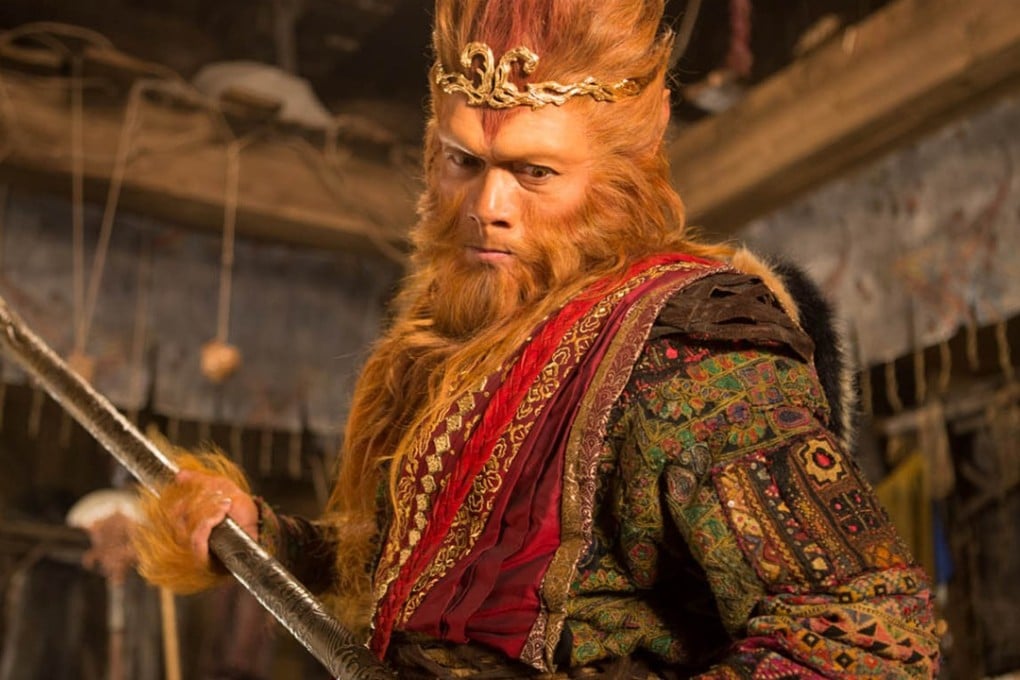Hello ‘Huallywood’: Chinese studio hopes Monkey King fantasy sequel will help make its name in film industry

With China’s box office setting a record high for a single day on Monday, it is Huallywood rather than Hollywood that is cashing in.
On the first day of the Year of the Monkey, Chinese box offices took 660 million yuan (US$100.5 million) – smashing the previous record of 425 yuan on July 18, 2015. And the biggest hits were Chinese produced.
Director Stephen Chow’s The Mermaid topped the box office on its Monday premiere with takings of 270 million yuan, setting a new record for domestic made movies on a single day.
From Vegas to Macao 3 and The Monkey King 2 also debuted on Monday, each taking more than 100 million yuan.
The Monkey King 2, starring Hong Kong actor Aaron Kwok Fu-shing and mainland actress Gong Li, is the latest offering from Wuxi Studios – known as Huallywood because of its aspiration to rival the home of the American film industry. The fantasy epic is being promoted as having the best special effects yet of any Chinese-produced film.
